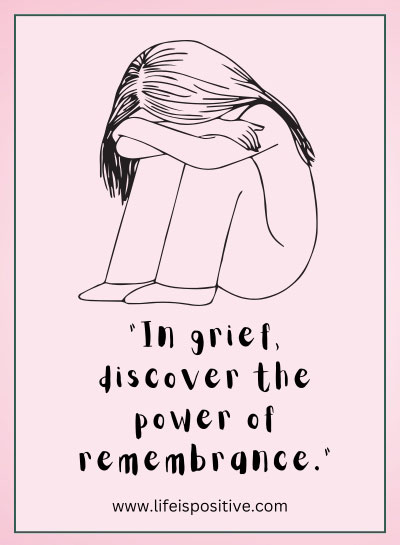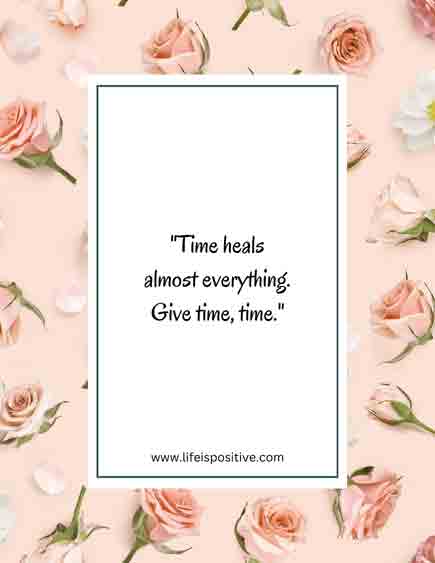|
Getting your Trinity Audio player ready...
|
We don’t mean to get it wrong, but sometimes talking about grief with the best intentions can still sting. Phrases like “everything happens for a reason” or “at least they lived a long life” might sound comforting, but they can actually feel dismissive to someone in pain.
The truth is, talking about grief gently doesn’t mean sugarcoating it. It means holding space, listening, and letting people feel what they feel—without trying to fix it. Grief is messy, real, and deeply personal. The best support? Presence over platitudes. Sometimes “I’m here” is the kindest thing you can say.
1. “They’re in a better place now.”
Let’s kick things off with a classic line that tends to pop up when talking about grief: “They’re in a better place now.”
Sure, it’s meant to be comforting, especially when the person who passed was going through a tough time. But here’s the deal—it can come across as dismissive.
The grieving person might totally get it, but that doesn’t make the pain any less real or their loved one any less missed.
2. “At least they lived a long life.”
When you’re talking about grief with someone who’s lost an elderly loved one, the phrase “At least they lived a long life” often makes an appearance.
Sure, it’s true, and it’s meant to comfort, but it can accidentally downplay the loss. It’s like saying, “Well, they had their turn, so don’t be too upset.”
But grief doesn’t come with an expiration date.
A better way to show support might be to say, “I know how much they meant to you, and it’s totally okay to feel heartbroken.”
Read: Encouraging Quotes After the Death Of A Loved One
3. “Time heals all wounds.”
Ah, the classic “Time heals all wounds” line. It sounds wise, doesn’t it?
But when you’re knee-deep in grief, it can feel like a slap in the face. Time might dull the pain eventually, but in the moment, it’s anything but comforting.
Instead, offer your support by saying, “I’m here for you, no matter how long it takes.”
4. “You have to be strong.”
Telling someone to “be strong” while they’re grieving can add even more pressure to an already emotional rollercoaster.
They’re already juggling a whirlwind of feelings, and now it feels like they’ve got to keep it all bottled up to be strong for everyone else.
Instead, let them know it’s perfectly fine to not have it all together. You could say, “It’s okay to feel whatever you’re feeling. You don’t have to hold it all together.”
Read: 15 Let Go Quotes To Help Your Journey of Release and Renewal
5. “Everything happens for a reason.”
This one can be a real kicker when talking about grief. While some people find comfort in believing everything happens for a reason, others might not.
It can come across as dismissing their pain and trying to rationalize the loss.
A more compassionate approach could be, “I’m so sorry this happened. I’m here to support you however you need.”
6. “I know exactly how you feel.”
Even if you’ve been through your own share of loss, dropping the “I know exactly how you feel” line can sometimes backfire.
Grief is different for everyone, and assuming you’ve got their feelings all figured out might make them feel like their pain is being overshadowed.
A better approach? Acknowledge that their experience is unique with something like, “I can’t imagine how you’re feeling, but I’m here to listen.”
7. “They wouldn’t want you to be sad.”
Sure, the person who passed probably wouldn’t want their loved ones to be sad, but saying that can feel like a bit of a guilt trip.
It’s like implying that grieving is wrong or that they should just snap out of it. A better way to go?
Try saying, “It’s totally okay to be sad and miss them. That’s just a reflection of how much you loved them.”
Read: How to Use Life’s Challenges Positively
8. “You’re so strong.”
Praising someone’s strength during grief might seem thoughtful, but it can also seem to gloss over their pain. They might feel like anything but strong, and that their real emotions are being sidelined.
Instead of zeroing in on their strength, you could say, “I really admire how you’re handling this, but it’s totally okay to let your guard down if you need to.
9. “It’s time to move on.”
Telling someone to move on from grief is like rubbing salt in a wound.
Grief doesn’t come with a deadline, and everyone deals with it in their own way.
Instead of nudging them to move on, remind them it’s okay to take their time: “There’s no rush in healing. Take all the time you need.”
10. “At least you have friends and family.”
This comment, while meant to be comforting, can feel like a harsh nudge that someone else should step in and fill the void left by the person who passed.
But let’s be real—every relationship is one-of-a-kind and can’t be replaced. A better way to show your support might be, “I’m so sorry for your loss. I’m here for you and your family.”
Read: Turn Your Struggles into Strength
11. “You’ll find someone else.”
Telling someone who’s lost a partner, “You’ll find someone else,” can sting more than you think. It’s not about replacing the person they’ve lost; it’s about mourning a one-of-a-kind relationship.
A more thoughtful way to offer support could be, “I’m so sorry for your loss. Your love for them was special, and it’s okay to take all the time you need to grieve.”
12. “Look on the bright side.”
Telling someone to “look on the bright side” when they’re grieving can make them feel like their emotions are being brushed off.
Sure, positivity has its perks, but grief isn’t something you can just slap a smiley face on. Instead, acknowledge their pain: “I know this is really tough, and it’s totally okay to feel down right now.”
How to Approach Talking About Grief with Compassion
Now that we’ve covered some of those common phrases but not-so-helpful phrases, you might be thinking, “So, what should I say?” The secret sauce? Listen more than you talk and offer empathy, not solutions.
Grief isn’t a puzzle to solve; it’s a journey, and sometimes, the best thing you can do is just show up and be there.
Here are a few tips for talking about grief with compassion:
1. Listen Without Judgment: Sometimes, all someone needs is a listening ear. Let them share their feelings without offering advice or trying to make it better.
2. Offer Practical Support: Instead of asking, “Is there anything I can do?” offer specific help, like bringing over a meal or running errands.
3. Respect Their Process: Everyone grieves differently, and that’s okay. Give them the space to mourn in their own way and on their own timeline.
4. Check In Regularly: Grief doesn’t end after the funeral. Continue to check in with them weeks and even months later to see how they’re doing.
Talking about grief is never easy, but with a little more awareness and compassion, you can make a big difference in someone’s healing process.
Final Thoughts On Talking About Grief
Grief is a fragile and deeply personal journey. It’s natural to want to say the perfect thing, but it’s important to remember that even the most well-meaning words can sometimes do more harm than good.
By being mindful of how we talk about grief, we can provide the kind of support that really counts.
So, the next time you’re faced with comforting someone who’s grieving, lead with empathy, listen more than you talk, and most importantly, just be there for them.
Your words have power—make sure they’re lifting up, not tearing down. And if you’re looking for more tips on how to offer comfort and understanding, check out our other articles on supporting loved ones through tough times.
After all, a little more kindness never hurt anyone.
For more empowering content, connect with our vibrant community here ➡️ Social Media.



